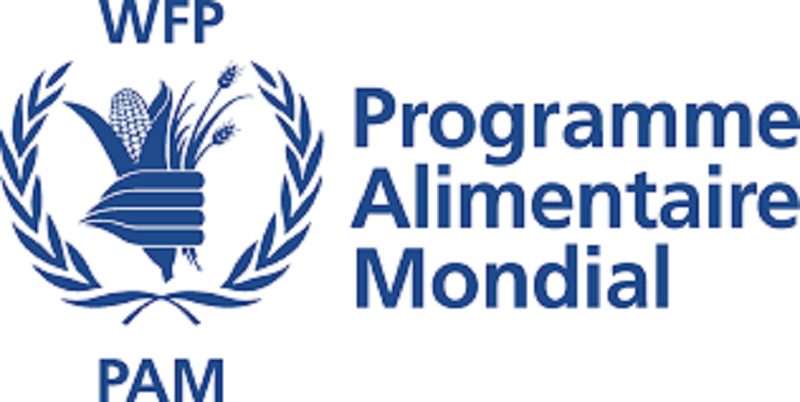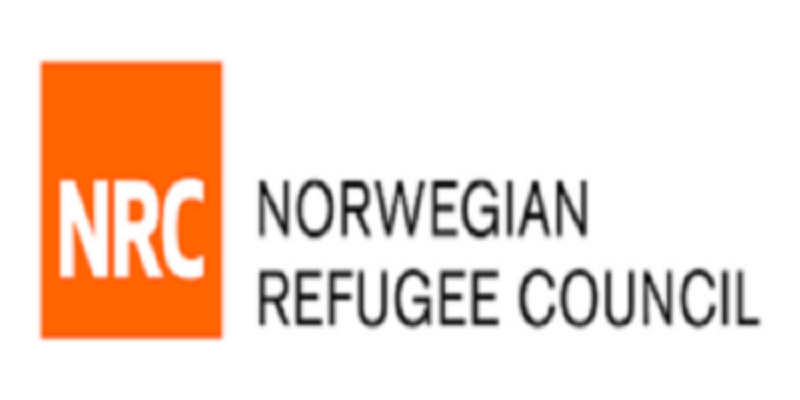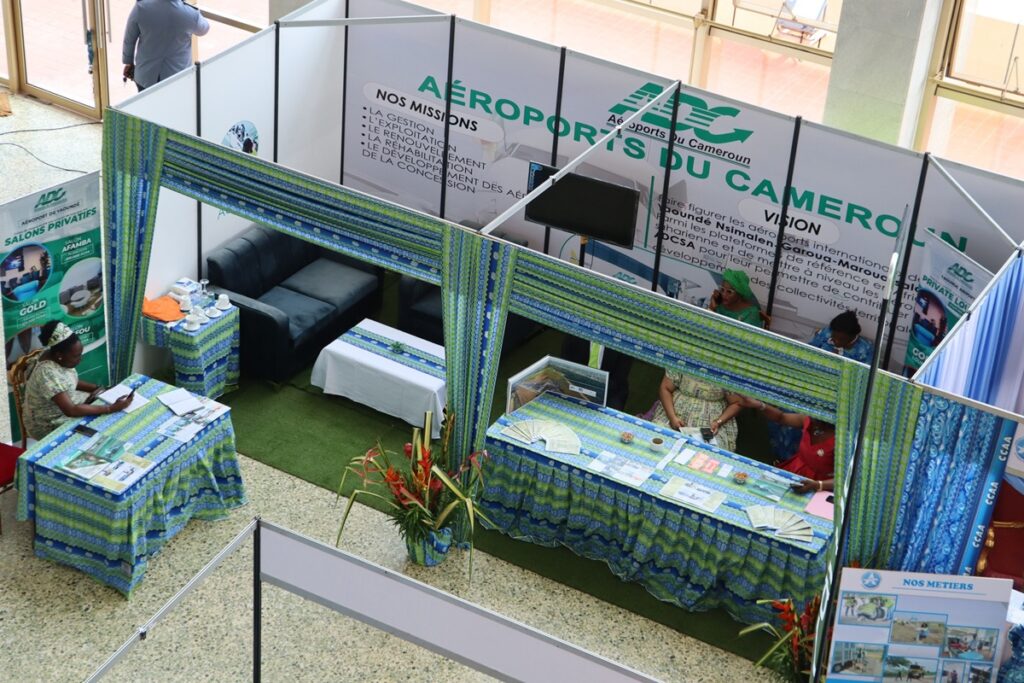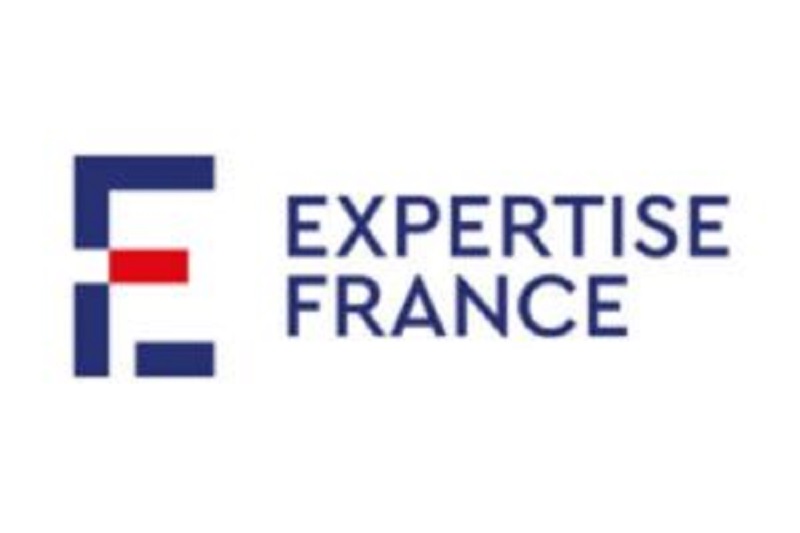POSTE 1 : Asset Creation Specialist (Roving Officer) P4 LFT (168321)
About WFP
Le Programme alimentaire mondial des Nations unies est la plus grande agence humanitaire qui lutte contre la faim dans le monde. La mission du PAM est d’aider le monde à atteindre la faim zéro de notre vivant. Chaque jour, le PAM travaille dans le monde entier pour faire en sorte qu’aucun enfant ne se couche le ventre vide et que les plus pauvres et les plus vulnérables, en particulier les femmes et les enfants, puissent avoir accès aux aliments nutritifs dont ils ont besoin.
To learn more about WFP, visit our website and follow us on social media to keep up with our latest news: LinkedIn, Instagram, Facebook, Twitter.
What is the broader context of this position?
Besides humanitarian assistance, WFP is assisting vulnerable populations to build resilience to shocks and stressors, tackle underlying vulnerabilities, and achieve more sustainable food security.
In the Western Africa region, WFP’s resilience portfolio includes an innovative programme to strengthen resilience across the G5 Sahel countries (Burkina Faso, Chad, Mali, Mauritania and Niger). Since 2018, WFP is implementing an integrated package of activities—combining asset creation, school feeding, nutrition, capacity strengthening and seasonal support— across the region and at scale in close coordination with governments and partners. Asset creation is the building block of the programme and designed to support communities in addressing specific obstacles to communities’ food security and resilience: watershed approaches to restore degraded landscapes, improve water harvesting for multiple uses, enhance agro-pastoral productivity, reduce vulnerability to natural disasters, as well as restore or build community and market infrastructure such as feeder roads, bridges or grain stores. These interventions are planned in close consultation with communities, using participatory planning methods that ensure the most vulnerable and marginalized have a voice in discussions on needs and solutions. In the past year alone, more than 1,7 million people benefitted from a WFP integrated resilience package, with interventions ongoing in more than 1,500 villages in the five countries.
The Resilience and Livelihood Unit under the Dakar Regional Bureau ensures that “resilience” is conceptualized and operationalized within a WFP context in Western Africa. The unit is responsible to coordinate WFP’s programme, technical and strategic work on livelihood assets creation and synergies with hunger-related safety nets including providing guidance material and direct support to country operations, including capacity development. WFP Offices (CO)s in countries of the Gulf of Guinea (“coastal countries”) are not yet benefitting from sustained support in this area of work, due to lack of human resources. The Resilience and Livelihood Unit can and will play a crucial role in catalysing, supporting and scaling-up livelihood assets creation and complementary activities in the region, and providing technical and operational support to Country Offices in coastal countries.
What will you do in this position?
You will support selected coastal Country Offices (with emphasis on English-speaking COs) on developing innovating and scalable asset creation and integrated resilience projects. Within the integrated resilience approach, the position will focus on Food Assistance for Assets (FFA) activities in savanna and humid tropics.
Why work with us?
This position is based in our Regional Bureau for Western Africa, in Dakar, Senegal. This Regional Bureau covers a broad and very diverse set of countries in Western Africa, and provides strategic guidance, policy/technical support and direction to WFP operations and activities in 19 countries in the region which is an amazing mix of cultures, people and diversity.
This is an opportunity for an exciting and challenging position in a multi-cultural and interdisciplinary team, based in a unique location, on a topic with high relevance. In addition, we offer:
Meaningful and impactful careers:
Our day-to-day work makes a difference in the lives of the people we serve
Continuous learning and training:
We provide learning tools for our staff to continually develop their careers
Multicultural and stimulating work environment:
We encourage gender and cultural diversity to make our teams stronger
Join us to make a difference, watch this video to know more about us!!
How can you make a difference?
In this position, you will have to:
- Lead project delivery and operational support (focusing on Food Assistance for Assets – FFA) to the Gulf of Guinea countries, and Sahel countries as needed. Streamline integrated resilience into coastal country operations.
- Provide support to coastal countries in the design, planning, implementation, monitoring and evaluation of country programmes, with a focus on promoting best practices, advocacy & learning.
- Support WFP Programming with a particular view to asset creation, building resilience, and natural resource management.
- Support to WFP Country Offices in developing project proposals (technical aspects, activity selection and planning, timelines and budgets); Demand-driven support on introduction of new FFA technologies and innovations, as well as consolidation and perfection of existing capacities and skills.
- Support and participate in the development and review of Country Strategic Plans and a Sub-Regional Strategy for coastal countries.
- Support the adoption of innovative solutions for low-cost infrastructure and approaches; Integrate and streamline forestry and agroforestry into coastal country’s resilience packages, to support food security and nutrition.
- Support project implementation and coordination in Country Offices in implementation of integrated resilience projects; Institutional development support to strengthen Country Offices structures to sustain scale up dynamics.
- Assist in advocacy and fundraising efforts to scale up, in general, the resilience and livelihoods activities in the region, and in coastal countries, in particular, the support functions of Resilience & Livelihood Unit to Country Offices.
- In priority countries, assist the development of specific proposals, and support to initiatives that strengthen linkages with gender, nutrition, value chains), etc.
- Support Country Offices in the development of project proposals in the areas of integrated resilience programmes, urban resilience, etc.
- Participate and carry out online and on-the job FFA and Resilience trainings on specific innovations.
- Perform other related duties as required.
This position reports to the Regional Resilience and Livelihoods Officer and will be part of the Resilience and Livelihoods Unit. The future incumbent will work in close collaboration with Programme Units in the Dakar Regional Bureau and WFP Headquarters. Travel within the Western Africa region may be required up to 30% of working time.
To join us in saving lives, changing lives, you will have for…
Education: Bachelor or Master’s degree in one or more of the following disciplines: Agriculture, Natural Resource Management, Environmental Studies, Civil and Environmental Engineering.
Experience: At least 08 years of relevant work experience in Natural Resource Management, Rural Development, Integrated Resilience for Food Security and Nutrition. Exposure to and experience with soil conservation, water works and infrastructure implementation, watershed management and planning, participatory approaches and community-led change projects, food security, nutrition programmes and safety nets desirable. Combination of threefold professional experience: 1) Humid Tropics and Savanah agroecologies, 2) Rural infrastructure works and technologies, and 3) integrated resilience approaches. Professional experience in savanah and humid tropics agroecologies, in the areas of forestry and agro-forestry. Academic and/or professional experience outside of Western Africa (Eastern or Southern Africa, or Asia) would be an asset.
Knowledge & Skills:
- Proficiency in Windows, MS Office (Word, Excel, PowerPoint, Outlook) and experience in using geographic information systems is an advantage.
- Good analytical skills; resourcefulness, initiative, maturity of judgement, tact, negotiating skills; ability to communicate clearly both orally and in writing; ability to work in a team, and establish effective working relations with persons of different national and cultural backgrounds.
- Ability to cope with situations which may threaten health or safety; flexibility in accepting work assignments outside normal desk description. Ability to deal patiently and tactfully with people of different national and cultural backgrounds.
Language: Fluency (level C) in English and Basic (level A) in French.
WFP Leadership Framework
These are the common standards of behaviour that guide HOW we work together to accomplish our mission.
Leads by Example with Integrity
Drives Results and Delivers on Commitments
Fosters Inclusive and Collaborative Teamwork
Applies Strategic Thinking
Builds and Maintains Sustainable Partnerships
Lives the WFP values and shows humanity and integrity by role modelling care for others
Delivers on commitments and adapts readily to change
Is inclusive and collaborative, and contributes to a culture of learning and personal growth
Demonstrates commitment to gather perspectives, analyse options and risks, and propose new ways of doing things
Builds and nurtures external partnerships and collaborates with partners to deliver common objectives
Different expectations of behaviour are defined depending on your grade and role/responsibilities within WFP.
Before you apply…
Limited Fixed-Term Appointment (LFT) position is a non-mobile staff appointment in the international professional category for a limited period for up to 4 years and is open to all nationalities (for HQ and RBs) or candidates must be a national of a country other than the country of assignment (for Country Offices). The position is based in Dakar, Senegal and the selected candidate will be expected to relocate. Incumbents of LFT positions are not eligible to apply for other mobile positions advertised internally through the Reassignment.
WFP offers an attractive compensation and benefits package in line with ICSC standards (http://icsc.un.org) including basic salary, post adjustment, relocation entitlement, travel and shipment allowances, 30 days’ annual leave, home leave, an education grant for dependent children, a pension plan, and medical insurance.
WFP seeks candidates of the highest integrity and professionalism who share our humanitarian principles. Selection of staff is made on a competitive basis, and we are committed to promoting an inclusive work environment in which diversity is valued and where no form of discrimination is tolerated. We aim to achieve parity in our teams in Western Africa. Qualified female applicants are especially encouraged to apply.
All employment decisions are made on the basis of organizational needs, job requirements, merit, and individual qualifications. WFP is committed to providing an inclusive work environment free of sexual exploitation and abuse, all forms of discrimination, any kind of harassment, sexual harassment, and abuse of authority. Therefore, all selected candidates will undergo rigorous reference and background checks.
No appointment under any kind of contract will be offered to members of the UN Advisory Committee on Administrative and Budgetary Questions (ACABQ), International Civil Service Commission (ICSC), FAO Finance Committee, WFP External Auditor, WFP Audit Committee, Joint Inspection Unit (JIU) and other similar bodies within the United Nations system with oversight responsibilities over WFP, both during their service and within three years of ceasing that service.
POSTE 2 : Geospatial Analyst P3 LFT (168241)
About WFP
The United Nations World Food Programme is the world’s largest humanitarian agency fighting hunger worldwide. The mission of WFP is to help the world achieve Zero Hunger in our lifetimes. Every day, WFP works worldwide to ensure that no child goes to bed hungry and that the poorest and most vulnerable, particularly women and children, can access the nutritious food they need.
To learn more about WFP, visit our website and follow us on social media to keep up with our latest news: LinkedIn, Instagram, Facebook, Twitter.
What is the broader context of this position?
The degradation of the security context in Western and Central Africa (WCA) in the last few years, leading to a lack of reliable information in hard-to-reach areas, hampers the monitoring of the agricultural season, the national food security analyses, and the effectiveness of the humanitarian response. Such insecurity levels in those areas are severely affecting livelihoods, in various ways: a surge in levels of displacement within and between those countries is registered each month, with this trend expected to continue; refugees and internally displaced people are almost entirely dependent on humanitarian assistance to meet their most basic needs. In addition to that, a less visible but equally important threat to food security, which has been highlighted by satellite imagery analysis must also be considered: many communities remain confined in their villages, unable to cultivate their fields or access markets due to movement restrictions imposed by armed actors.
In such rapidly evolving situations, in such vast territories, where certain areas are hardly accessible, remote sensing tools are essential to complement the information traditionally gathered through field data collections and face-to-face surveys. Earth Observation (EO) satellite imagery enables to overcome access constraints and territory vastness, to assess vulnerability levels in hard-to-reach areas. The WFP Regional Bureau for Western Africa’s (RBD) geospatial analysis workstream was introduced in 2020 and aims to leverage satellite imagery to inform food security analysis and emergency response in the region, after WFP Mali Country Office started piloting this project over the Mopti region in 2019. Deliverables of this satellite analysis detecting cropland change at locality-level, in hard-to-reach areas, have become expected elements in the evidence-generation scenery of WCA. Such products bring evidence and highlight existing conflict-related vulnerabilities and address critical information gaps, allowing to better inform early warning systems in WCA. A regional roll-out has proven how such analyses benefit humanitarian and development partners as well as state actors.
This specific type of analysis set up the stage for more EO-based analyses, which are relevant and useful in the context of the region: geo-targeting activities based on EO-derived climatic indicators, monitoring of WFP resilience activities with satellite imagery, mapping poverty and other applications in urban contexts, etc. All those analyses are instrumental in informing different WFP units, in several Country Offices and at the Regional Bureau level. Finally, capacity strengthening activities with local partners and relevant regional agencies are essential to ensure adequate appropriation of the technology by all counterparts, and its integration into existing information systems and decision-making mechanisms. This will help set up the right bases for similar EO analyses in the future (within WFP and by partners) and ensure continuity in the good use of the technology.
What will you do in this position?
You will analyze satellite imagery, to detect and quantify cropland change dynamics at the locality level in hard-to-reach/inaccessible areas across West and Central Africa (WCA), providing evidence of existing conflict-related hazards and vulnerabilities. He/she will produce an analysis focus on conflict-affected areas where access is limited, including the Liptako-Gourma area (border areas between Burkina Faso, Mali and Niger), the Lake Chad Basin (Northern Cameroon, Western Chad, South-Eastern Niger, North-Eastern Nigeria), the Central African Republic, parts of Chad and parts of Cameroon. You will work in close collaboration with relevant partners and the taskforce POT (Produits d’Observation de la Terre), a regional taskforce gathering institutions involved in the EO domain in WCA, including ACF, CILSS, FAO, FEWSNET, JRC, Nigerian Space Agency, WFP, SERVIR etc. At the country level, she/he will implement capacity-building activities for national governments, local authorities as well as humanitarian partners.
Why work with us?
This position is based in our Regional Bureau for Western Africa, in Dakar, Senegal. This Regional Bureau covers a broad and very diverse set of countries in Western Africa and provides strategic guidance, policy/technical support and direction to WFP operations and activities in 19 countries in the region which is an amazing mix of cultures, people and diversity.
This is an opportunity for an exciting and challenging position in a multi-cultural and interdisciplinary team, based in a unique location, on a topic with high relevance. In addition, we offer:
Meaningful and impactful careers:
Our day-to-day work makes a difference in the lives of the people we serve
Continuous learning and training:
We provide learning tools for our staff to continually develop their careers
Multicultural and stimulating work environment:
We encourage gender and cultural diversity to make our teams stronger
Join us to make a difference, watch this video to know more about us!!
How can you make a difference?
In this position, you will have to:
- Coordinate the use and integration of cropland change analyses in Research Assessment and Monitoring (RAM) activities and with in-country partners in West and Central Africa (WCA).
- Conduct satellite analysis to detect cropland change in hard-to-reach areas of identified countries, produce maps and adequate reporting of the analyses (table of derived indicators for the use in Cadre Harmonisé (CH)/IPC, list of affected villages and summary notes).
- Triangulate cropland change results with secondary data and if possible, conduct field activities to validate the results of the analysis.
- Provide operational support to Country Offices (COs) across the region on geo-targeting activities based on Earth Observation products.
- Roll out satellite-based analysis to help measure WFP resilience activities.
- Strengthen the capacity of WFP staff and external partners in the use of satellite imagery in the Western and Central Africa region.
- Communicate and advise on the use of satellite imagery in the Western and Central Africa region.
- Provide technical support to the launch of PRISM platform (Composite applications typically feature multiple screens, rich user interaction and data visualization) and to the general work of WFP RBD through ad-hoc requests.
- Develop partnerships with key regional stakeholders to improve the integration of EO analyses.
- Participate as the WFP focal point in the West Africa POT taskforce (Produits d’Observation de la Terre, or Earth Observation Products), a regional taskforce gathering institutions involved in Earth Observation in West and Central Africa.
- Explore other applications of satellite imagery specifically, and more generally of technical innovations relevant to the WFP Research Assessment and Monitoring (RAM) work.
This position reports to the Senior Regional Research Assessment and Monitoring (RAM) Advisor and will be part of the RAM Unit. Travel within the Western Africa region may be required up to 50 % of working time.
To join us in saving lives, changing lives, you will have for…
Education: Advanced University Degree (Master) in Engineering, Data Science, Remote Sensing, Geographic or Agricultural sciences.
Experience: A minimum of five (05) years of professional experience in satellite imagery analysis.
Knowledge & Skills:
- Proficiency in GIS and geospatial analysis techniques and standards.
- Knowledge of main EO data platforms and processing software.
- Knowledge of the institutional framework of the humanitarian sector and experience. in international organizations (UN/NGOs; preferably in the field of food security).
- Experience in capacity strengthening of various types of audiences is an advantage.
- Knowledge of the conflict and security context in the Sahel is preferred.
- Ability to work with a diverse group of stakeholders, including state actors and local civil society, and develop consensus.
- Ability to work with tight deadlines whilst retaining flexibility and a sense of priorities.
- Ability to deal with organizational and administrative as well as scientific and technical matters.
- Advanced knowledge of GIS and remote sensing.
- Advanced knowledge of programming languages (Javascript, Python, R).
- Ability to produce clear and concise reports and deliverables, with well-presented information in the form of tables, charts, graphs and maps.
- Ability to communicate clearly on the project, both written and orally.
- Good coordination, cooperation, and interpersonal skills.
- Good analytical and problem-solving skills.
Language: Fluency (level C) in French and English.
WFP Leadership Framework
These are the common standards of behaviour that guide HOW we work together to accomplish our mission.
Different expectations of behaviour are defined depending on your grade and role/responsibilities within WFP.
Before you apply…
Limited Fixed-Term Appointment (LFT) position is a non-mobile staff appointment in the international professional category for a limited period for up to 4 years and is open to all nationalities (for HQ and RBs) or candidates must be a national of a country other than the country of assignment (for Country Offices). The position is based in Dakar, Senegal and the selected candidate will be expected to relocate. Incumbents of LFT positions are not eligible to apply for other mobile positions advertised internally through the Reassignment.
WFP offers an attractive compensation and benefits package in line with ICSC standards (http://icsc.un.org) including basic salary, post adjustment, relocation entitlement, travel and shipment allowances, 30 days’ annual leave, home leave, an education grant for dependent children, a pension plan, and medical insurance.
WFP seeks candidates of the highest integrity and professionalism who share our humanitarian principles. Selection of staff is made on a competitive basis, and we are committed to promoting an inclusive work environment in which diversity is valued and where no form of discrimination is tolerated. We aim to achieve parity in our teams in Western Africa. Qualified female applicants are especially encouraged to apply.
All employment decisions are made on the basis of organizational needs, job requirements, merit, and individual qualifications. WFP is committed to providing an inclusive work environment free of sexual exploitation and abuse, all forms of discrimination, any kind of harassment, sexual harassment, and abuse of authority. Therefore, all selected candidates will undergo rigorous reference and background checks.
No appointment under any kind of contract will be offered to members of the UN Advisory Committee on Administrative and Budgetary Questions (ACABQ), International Civil Service Commission (ICSC), FAO Finance Committee, WFP External Auditor, WFP Audit Committee, Joint Inspection Unit (JIU) and other similar bodies within the United Nations system with oversight responsibilities over WFP, both during their service and within three years of ceasing that service.





